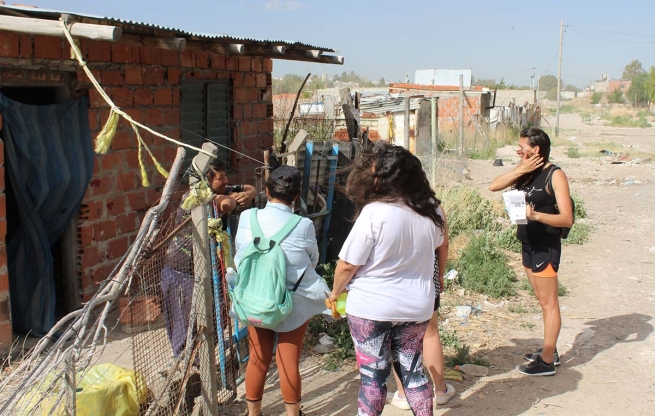The houses that took part were Santa Catalina, San Francisco de Sales and Nuestra Señora de los Remedios, in the city of Buenos Aires; Juan Segundo Fernández in San Isidro; the Oratorio Centenario in Avellaneda; and those in Victorica, in the Province of La Pampa; Bariloche, in the Río Negro; and Trelew, in Chubut.
The project reached more than 5,000 boys and girls directly, and another 2,000 people indirectly. Teachers, managers, administrative and maintenance staff have been trained and local government policies have been influenced. It has also strengthened the environmental teams of the eight Salesian houses and the network of cooperation with national institutions related to environmental protection and enhancement. Lastly, three manuals were produced that are essential for the continuity of environmental commitment in each house that participated in the project, and to accompany other houses and communities on similar paths in the future.
The project served to provide tools and possibilities to generate new jobs and promote habits of social transformation. “As a province, we are convinced that there is no way out of the environmental crisis except in community,” say the ARS Communication Office.
“This project excites and challenges us, not only for these eight houses that have worked and continue to work on this ground, but also so that the rest of the houses in the province can start to follow this same logic. This is the commitment that Pope Francis has asked of us and we, as Salesians of Don Bosco, have taken it on, we accept it and, with great pleasure, we carry it forward. I would therefore like to thank all the people who have worked on this project in Argentina, and in particular the JuWe NGO, because without their support it would have been impossible to carry it out,” said Fr Gabriel Doddi, Provincial Economer and Director of the ARS Planning and Development Office.


